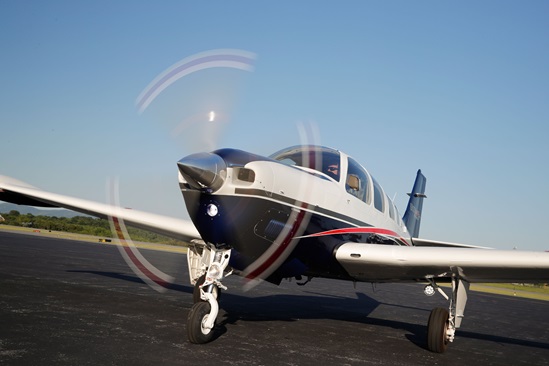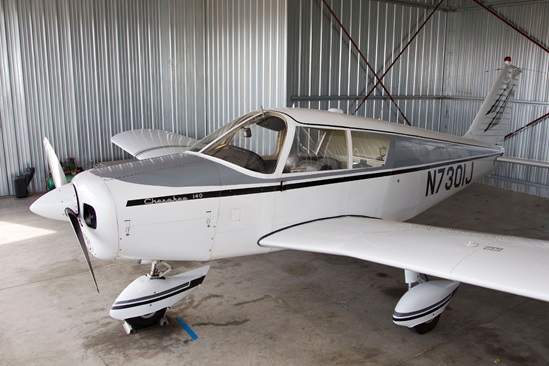AOPA says airlines' user charge proposal is a control grab
The airlines' proposal for funding the FAA is nothing more than an attempt to grab control of the air traffic control system and shift costs to other users, according to AOPA. Last week, the airlines announced their "statement of principles" for a new FAA funding mechanism.
"The bottom line to their proposal is a user fee system in which the airlines have the loudest voice in dictating how the system will be run and who gets to use it," said AOPA President Phil Boyer. "As I've said before, a user fee for some ultimately becomes a user fee for all, and that would be the death of general aviation.
| "...it's ironic that a chronically bankrupt industry...is now telling Congress how to run... a business." |
"And it is more than ironic that a chronically bankrupt industry that has mismanaged its affairs to the point that it can't even pay full employee pensions is now telling Congress what it 'must' do to run the FAA as a business."
The airline principles, announced as the "unified vision" of the 19 airline members of the Air Transportation Association (ATA) for "funding a next-generation air traffic control system," calls for Congress to "impose a specific schedule of mandatory user charges, directly and proportionally linking system use with system costs."
And then Congress is supposed to get out of the way.
In the ATA plan, this "dedicated revenue stream" would be spent in a timely matter, "without additional congressional action."
"Congress must remain the 'board of directors' for the FAA and the air traffic control system," said Boyer. "With Congress in control, we've created the safest, most efficient system in the world. Why change?
| "...it is the people, not the airlines, who are the ultimate air traffic control system users." |
"Congress is the voice of the people. And it is the people, not the airlines, who are the ultimate system users," Boyer said.
The FAA is supposed to get out of the way as well.
The plan calls for "autonomous authority [to be] granted to the Air Traffic Organization, to facilitate effective cost control and decision making."
And who would be the boss of the ATO? "A reformed administrative structure, providing for a direct role in governance proportional to the extent of each user category's financial contribution...."
Now, no matter whose numbers you use, the airlines are by far the biggest ATC users and would pay the most.
Under the ATA plan, the airlines would control the air traffic control system - a system that is already geared to meet the demands of the airlines, not general aviation.
"We believe cost control is maintained when Congress controls the purse," said Boyer. "And the air traffic control system cannot be autonomous from the FAA. ATC is part of a national system that includes airports and navigation aids.
| "...we have a real problem with private, competitive businesses setting the rules...." |
"And frankly, we have a real problem with private, competitive businesses setting the rules for the use of the air traffic control system."
ATA says that "any new FAA funding method must be based on reasonable indicia of use of the aviation system," and that "aircraft charges [should be] based on a percentage formula that incorporates only number of 'departures' and 'time in system.'" And while it says that each user category may rely on its preferred user charge collection mechanism, those users may "not impose any burden on commercial aviation that is not cost-based."
"The air traffic control system was built to meet the peak traffic demands of the airlines," said Boyer. "The marginal cost to add GA into the system doesn't even rise above the noise level.
| "...if GA stopped flying tomorrow, how much less would it cost to run ATC?" |
"Look at it this way - if GA stopped flying tomorrow, how much less would it cost to run the air traffic control system? It didn't cut costs any when GA was banned from Reagan National Airport."
ATA did offer what it apparently thought was a concession to GA: "Operators of piston-powered general aviation aircraft should continue to pay through their fuel tax mechanism," ATA said.
"The aviation fuel tax should continue to be the preferred FAA financing mechanism. To single out one type of engine or fuel is to ignore the future," said Boyer. "Today's new general aviation aircraft are already transitioning from avgas-fueled piston engines to light weight, lower power turbines. Within in the lifespan of the next generation air traffic control system, it's not inconceivable that jet-fueled turbines could power a significant portion of the GA fleet.
| "...there's no need to create an aviation IRS to collect user fees...." |
"The current system of excise taxes and general fund revenue is the fairest, most efficient way to fund the FAA," Boyer continued. "There is no expensive collection bureaucracy, no need to create an aviation IRS to collect user fees.
"Congress must remain in control of both the taxes and the spending. Despite the canards flying about, the system isn't broken, and it doesn't need to be fixed. And a user fee system - no matter if GA is excluded initially - is too bloated, too inefficient, and too out of control to get off the ground as far as general aviation is concerned."
March 13, 2006


